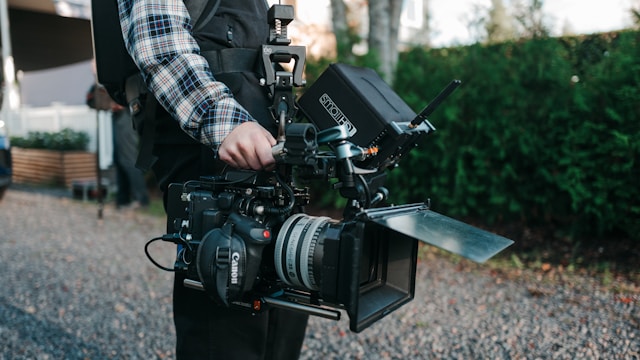Artificial intelligence is transforming industries worldwide, and the film industry is no exception. From script development to visual effects and audience engagement, AI in filmmaking is reshaping how movies are created, marketed, and experienced. While some see artificial intelligence in movies as an exciting opportunity, others worry about its ethical and creative implications. Understanding the impact of AI in the film industry helps us see how this technology is changing cinema today and shaping its future.
AI in Pre-Production
The earliest stages of filmmaking are already benefiting from AI. Scriptwriting software powered by artificial intelligence can analyze successful screenplays, suggest dialogue, or even generate plotlines. While it may not replace human creativity, AI in scriptwriting offers inspiration and speeds up the writing process. Casting has also seen improvements with data-driven predictions, helping filmmakers choose actors based on audience preferences and box office patterns. Beyond creative input, AI tools support production teams with budgeting and scheduling, making pre-production more efficient and less prone to human error.
AI in Film Production
During production, AI technology plays a vital role behind the camera. AI-powered cameras and real-time editing tools help directors capture the perfect shots. Visual effects and CGI are becoming more advanced through machine learning, allowing realistic animation and special effects at reduced costs. Virtual production, which combines AI environments with live-action filming, is gaining popularity, as seen in major productions that use digital backgrounds instead of physical sets. This not only reduces costs but also opens up limitless creative possibilities for filmmakers.
AI in Post-Production
Post-production has always been a labor-intensive process, but AI is changing that. Automated video editing software can scan through hours of footage and suggest the best cuts. Sound design also benefits from AI tools that can clean audio, remove background noise, and generate realistic effects. One of the most notable uses of artificial intelligence in movies is deepfake technology, which has been used to de-age actors or digitally recreate performances. While this sparks debate, it also offers filmmakers new ways to tell stories. AI-assisted color correction and enhancement tools ensure polished visuals with less manual effort, saving time and money.
Audience Experience and Marketing
AI doesn’t stop at production it also affects how audiences interact with films. Streaming platforms rely heavily on AI-powered recommendation engines to personalize viewing experiences. By analyzing user behavior, these platforms suggest films audiences are more likely to enjoy, keeping them engaged. On the marketing side, AI helps predict box office performance and target promotions effectively. Studios are also experimenting with interactive storytelling, where AI adapts the plot based on audience choices, creating immersive and personalized cinema experiences.
Ethical Concerns and Challenges
While the impact of AI in the film industry is largely positive, it also raises significant concerns. One major issue is ownership who holds the rights to AI-generated content? Deepfake technology poses another challenge, as it can be misused to create misleading or harmful content. Additionally, many worry about the effect on jobs, as AI-powered video editing and automation could replace roles traditionally held by humans. The balance between efficiency and protecting creativity is a major debate within the industry.
The Future of AI in Cinema
Looking ahead, AI in filmmaking will only continue to grow. Some predict a future where AI may co-direct films or even create entire productions independently. However, most agree that the best outcomes come from blending human creativity with AI-driven efficiency. Filmmakers who embrace these tools while maintaining their artistic vision will likely thrive in this new era of cinema. For audiences, this means more innovative stories, immersive effects, and personalized experiences.
Conclusion
The impact of AI in the film industry is undeniable. From scriptwriting and visual effects to audience engagement, artificial intelligence is changing cinema in profound ways. While there are challenges surrounding ethics, ownership, and employment, the benefits are equally powerful. As technology evolves, the key lies in using AI as a tool to enhance not replace human creativity. The future of AI in movies promises a fascinating blend of imagination and innovation that could redefine storytelling for generations to come.

